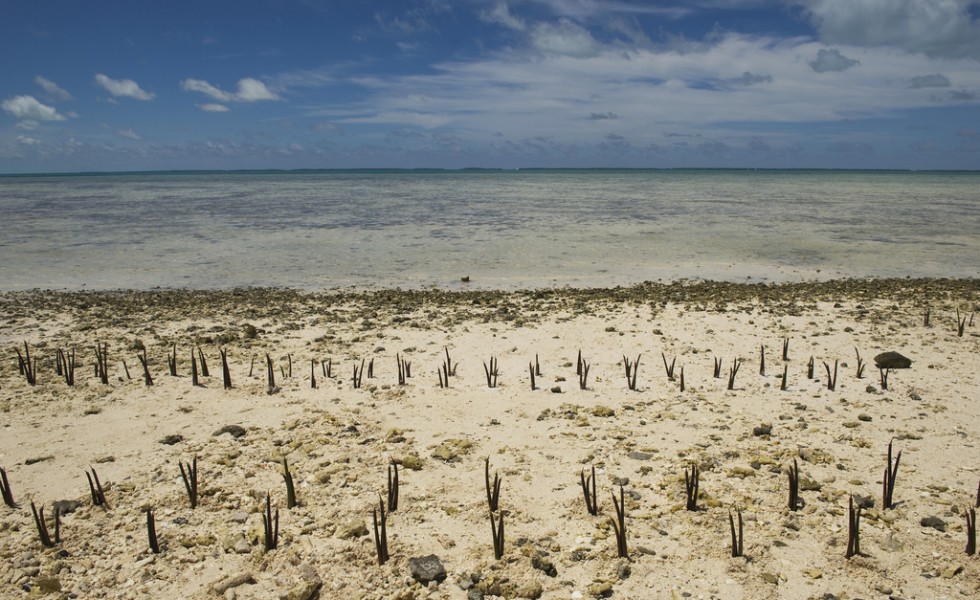You’re Getting Warmer…
Posted on June 29, 2017

In a White House Rose Garden ceremony June 1, President Donald J. Trump announced he would pull the U.S. from the Paris treaty on global climate change. It was a matter of national sovereignty, explained Trump.
Or, as he colorfully noted, “I was elected to represent the citizens of Pittsburgh, not Paris.”
True, but he was elected to represent Paris, IL; Paris, TX; Paris, KY; Paris, ID; Paris, AR; Paris, ME; Paris, MI; Paris, IA and Paris, IN. What’s more, if national polling holds true in these somewhat lesser cities of light, then two out of every three American Parisians see climate change as a global, national, community, and personal threat.
Still, the President acted. How will U.S. and world agriculture react?
The always-sunny Secretary of Agriculture Sonny Perdue endorsed the President’s move. “Floods, droughts, and natural disasters are a fact of life for farmers, ranchers, and foresters,” ironically noted the secretary as if acknowledging the food-growing reality climate scientists say is ahead of us if we take the White House’s fossil-fueled course.
But, hey, added Perdue, farmers and ranchers “have persevered in the past and they will adapt in the future—with the assistance of the scientists and experts at USDA.”
There are two gaping holes in Perdue’s sunny net. First, not all farmers and ranchers “persevered” in previous climate calamities. In fact, many farm families and rural communities still carry the searing scars of the dirty, hungry Dust Bowl days of the 1930s and widespread, devastating floods in 1973 and 1993.
Mankind may not have been the root cause of these disasters but we did add to them and our failure to not even plan for their possibility cost thousands their lives and many more thousands their livelihoods.
Today, another generation of farm and ranch leaders again must decide if Mother Nature is a partner or a hired hand. As the Trump White House sees it, it’s the latter; she works for us. Moreover—as a matter of national interest—she’s now on notice.
Wise farmers and ranchers everywhere know, however, it’s the former. That’s not liberalism or politics; it’s experience and common sense.
Another blind spot in Perdue’s endorsement of Trump’s climate policy is quickly becoming something of a specialty of this Administration: While the secretary claims American agriculture will be ready for any climate-altered future because of “the assistance of the scientists and experts at USDA,” President Trump’s 2018 federal budget proposal cuts USDA’s Agricultural Research Service funding by roughly 32 percent. If adopted, that $360 million slice (out of its $1.1 billion budget) means USDA would have to close 17 of its 90 or so research centers.
Which centers would close? No one can say, but if the Boss believes climate change isn’t a serious threat, few scientists serious about their careers at USDA will do climate change research.
Not researching climate change—just like jumping out of the Paris climate accord—does not mean a changing climate won’t impact farmers and ranchers.
In its 2015 report titled “Heat in the Heartland: Climate Change and the Economic Risk in the Midwest,” an all-star group of political, business, and academic leaders warned that “Without action, climate change will lock in extreme temperature increases across the Midwest” where, they noted, 65 percent of all corn and soybeans are grown, one-third of U.S. manufacturing is located, and where one in five Americans live.
And it’s going to happen in a hurry. “Over the next 5 to 25 years, without significant adaptation by farmers, some counties in Missouri, Illinois, and Indiana will likely see average commodity crop losses up to 18 to 24% due to extreme heat each year,” the report relates.
The point is as simple as it is apparent. Climate change is happening and will continue to happen.
Ignoring it—by withdrawing from political and scientific efforts to mitigate and maybe manage it—goes against what farmers and ranchers instinctively do best everyday: solve problems, not make ‘em worse.
© 2017 agcomm

How can so many people believe in the science of GMO seed, Herbicides, Insecticdes and fertilizer and then totally reject the science behind climate change. Keep up the good work.